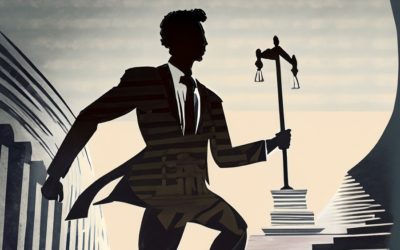
Feature
Characteristics of Spy Fiction
Harris L. Kligman
Spies. The word alone is full of mystery and intrigue. A spy is a highly intelligent, critical thinker who can handle stress, extreme adversity, is very adaptable, physically-fit and most importantly, has the ability to blend in no matter what the environment. They are trained for missions that will take out enemy assets. He or she might have a history of living abroad, speaking a foreign language, training in hand-to-hand combat, or one of the martial arts.
Spies live in a dangerous, surreal world where their life is often on the line. When a reader picks up a good spy novel, they expect to be given access to the inner-workings of situations that are reserved for only a select few, and transported through experiences that the average reader would not find themselves part of in real life.
The storyline must have a killer concept and a credible protagonist and/or antagonist. This must continue through the storytelling with high visual action scenes, vividly portrayed, until the conclusion of the novel. Creating a tangible experience for the reader is necessary for making them feel like they are fully immersed in the storyline.
A basic, yet most important element of any spy novel is the main character. He or she leads the narrative and must be believable in form and function. If the character is not plausible, the story is doomed before the reader reaches the end of the first chapter. It is essential to portray characters with realistic traits and robust personalities, with dialogue that captivates the reader’s interest and connects them to both the characters and storyline.
What does it take to be a spy? Actual spies (intelligence operatives) are not what you see in the movies. They are ordinary people, male and female, who through experience and exhaustive training become skilled in role playing and trade craft to achieve their mandated assignments. They are practitioners in the shadow world. Their skills include assessing situations, people, and environments through vast research as well as direct observation.
Spies are normal people with everyday problems. They are taught to compartmentalize these problems to the degree possible, so the spy successfully completes their mandated mission. These everyday problems, if mentioned in the storyline, brings to the reader the plausibility of the spy – it humanizes or dehumanizes them, both of which adds depth to the characters being portrayed.
It is important for the writer to develop their characters in such a way that readers can identify to a degree with all of them. The readers need to “feel” the difficulties, the highs and lows, the adrenaline rushes that the spy and supporting characters are experiencing. This helps the reader become involved in the emotional struggles of each character and keeps them turning pages.
Spies are experts in using spy tools to help them in their missions. It is mandatory to be one-hundred percent accurate when describing the tools used in trade craft. It is also extremely important for the writer to render accurate descriptions of malfunctions with spy tools as they occur. A reader will be turned off quickly if the malfunction of a spy tool is not correctly depicted. The writer must always assume that the reader’s background might be such that they are familiar with some of the weapons and technology included in the story.
Believability is an underpinning of any good spy novel. Research can give the writer some necessary background as the story comes together. However, if the writer has first-hand knowledge about events, places, people, and trade craft used in the novel, this helps to build depth of clarity and genuineness that research or second-hand knowledge cannot provide. Furthermore, the writer with first-hand knowledge has an advantage as they weave in the sights, sounds and even smells of the scenes they are creating enveloping his characters into these experiences so that the reader feels as if he/she is part of the action.
Who is going to dominate? This should be a question the reader is continually asking themselves as they read the novel, waiting for the next turn of events to provide a clue to what will happen. The reader should be on edge, and guessing who will come out ahead. The hero or heroine? The protagonist or the antagonist?
The reader ultimately wants their questions answered at the conclusion of the novel. They need to understand what the outcome was for each of the characters as the author ties up all the loose ends. Spies are human, and not invincible. Whether they are doing their work for good or evil, the fascination with how they fare in the end can either offer the reader closure or have them hunger for more. Does the spy live to perform another mission? Look for the sequel.
About the Author
Born and educated in the “City of Brotherly Love,” the author left Philadelphia, Pennsylvania in his early twenties. For over thirty-five years, he interacted with various military governments and business entities who dominated the spheres of influence throughout the Far East, Africa, and South America.
A linguist, a devotee to the Martial Arts (holder of a Black Belt in Hapkido, earned while living in South Korea) and a retired United States Army Intelligence Officer who is also cross-trained as an Infantry Officer, the author brings his varied experiences to his novels.

Similar Features
Political Thriller Protagonists
What are the qualities of a good protagonist in a political thriller?
Spy Thriller Villains
Unraveling the Bad Guys of Espionage Fiction
Political Thrillers for Independence Day
4th of July Political Thrillers
Advertisement



